Secure your website with our easy, fast and reliable Standard, EV, and Wildcard SSL Certificates. Get your SSL Certificate now. Find out more here!
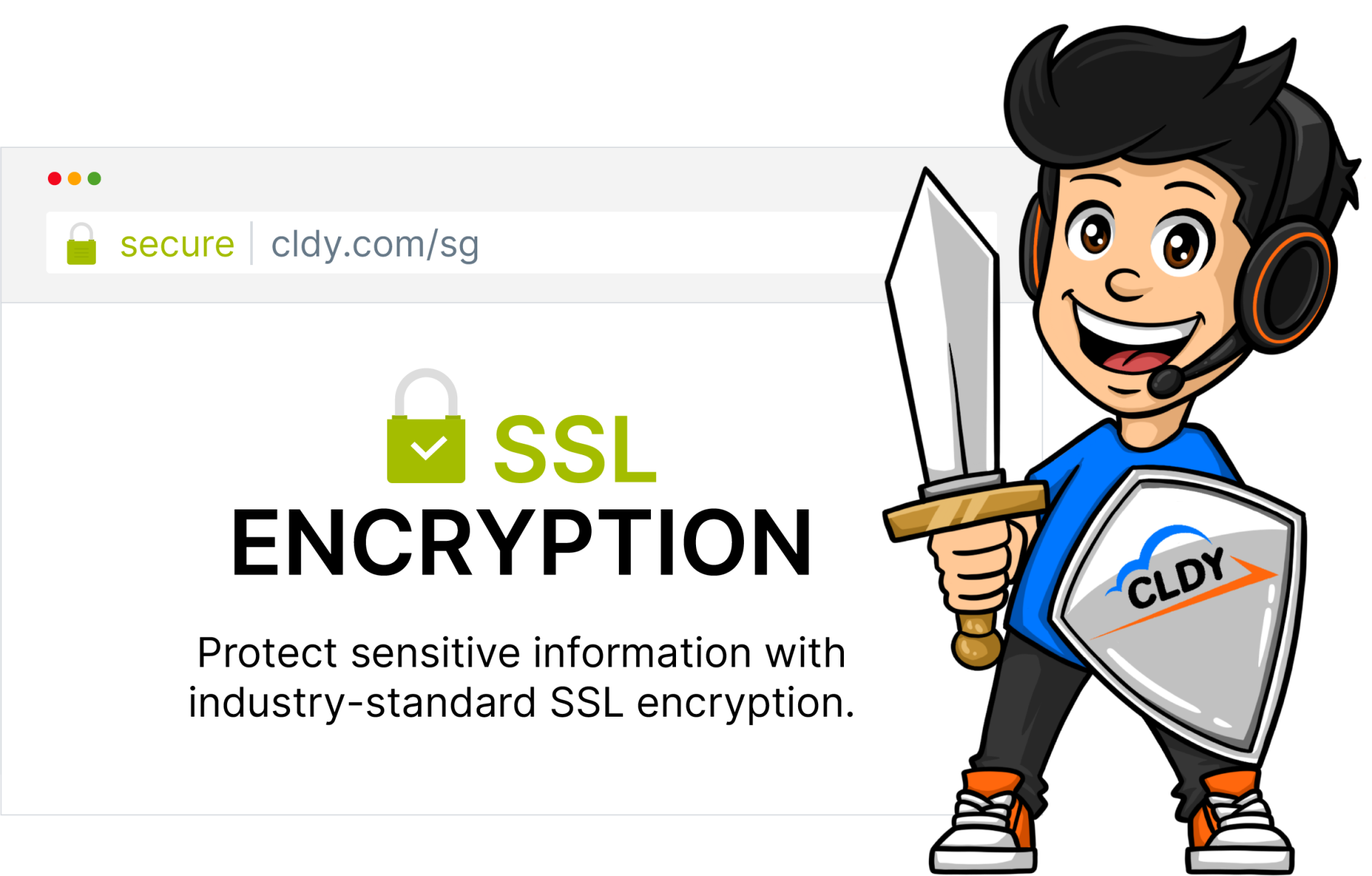
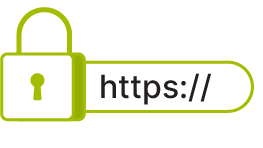
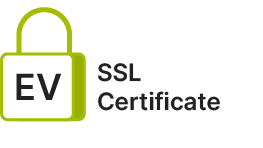

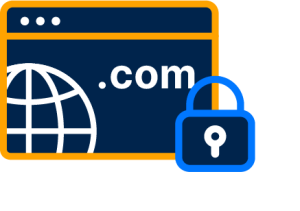
When a visitor enters an SSL-protected website, your SSL certificate automatically creates a secure, encrypted connection with their browser.
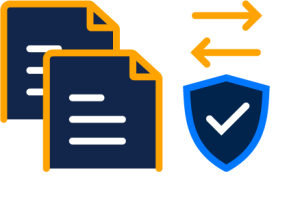
All information going to and from your website is now encrypted, protecting your data.
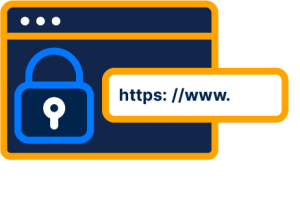
Once the connection is complete, a padlock icon and https prefix appear in the visitor’s browser bar ensuring you that browsing on the site is safe and secure.
Using CLDY’s premium certificates helps increase user confidence by showing you have secured your true identity online after validation from an industry-recognised Certificate Authority.

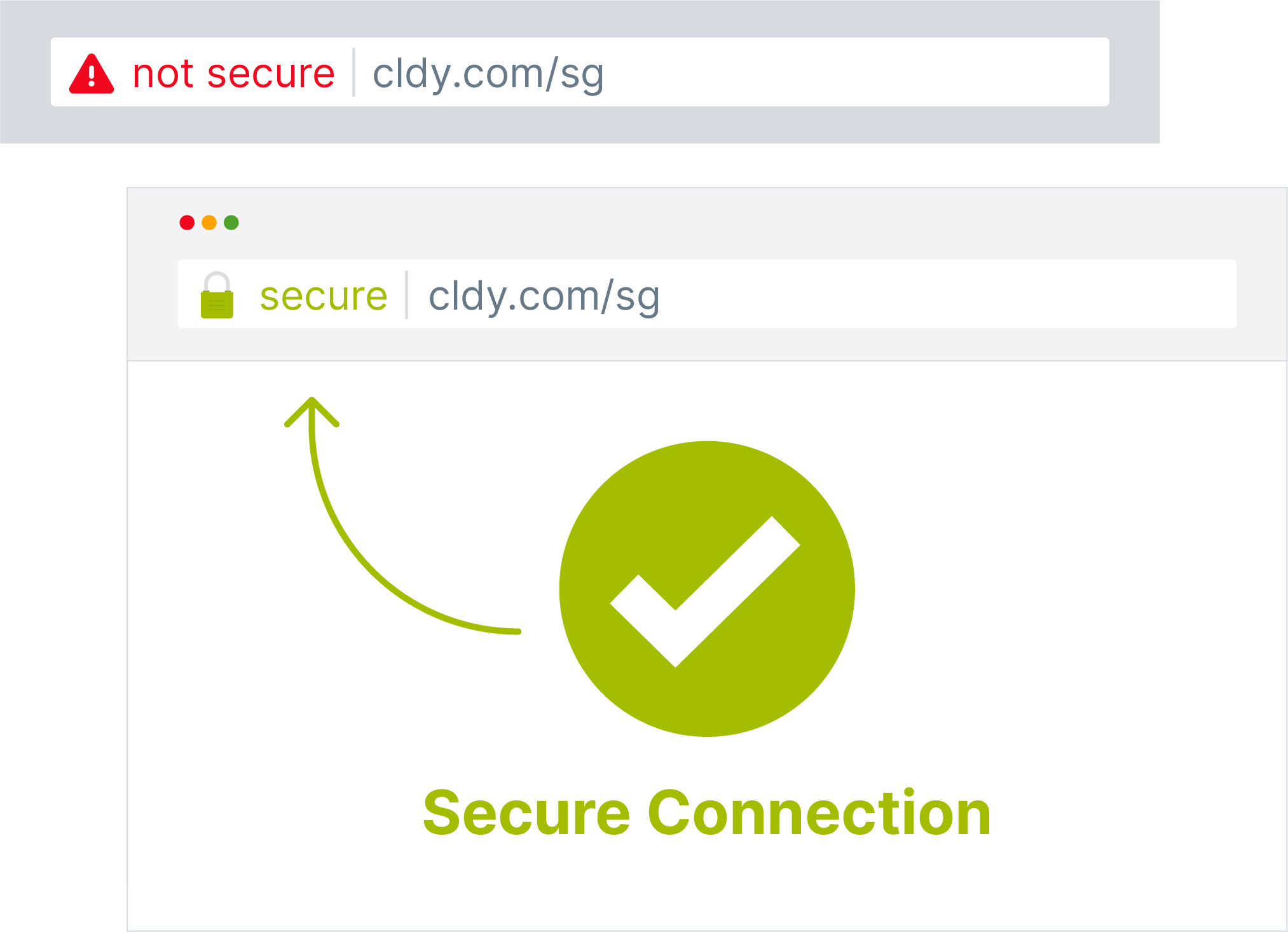
A site without SSL is immediately flagged as “Not Secure” scaring potential customers away. An SSL Certificate takes this warning out and your customers can be assured that any valuable information shared is encrypted and protected on your site.
HTTPS-encrypted websites are heavily favoured by search engines, pushing them higher in search results. This will help potential customers find you easily.

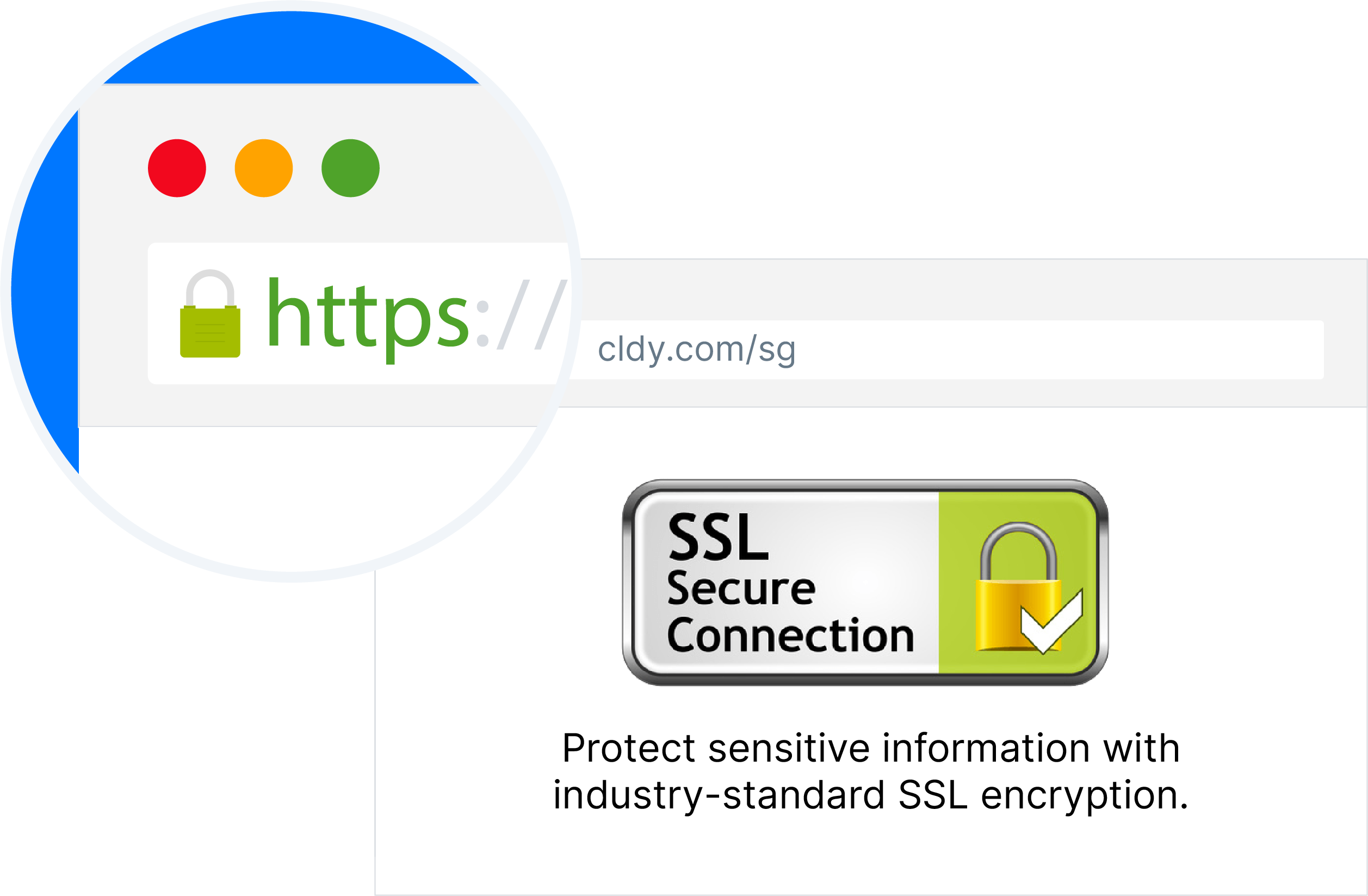
An SSL certificate provides the strongest protection for online businesses, including standards and regulations such as PCI-DSS, HIPAA, HITECH, GDPR, and more.
Trust is the cornerstone of SSL certificates as it protects sensitive customer data on your site.

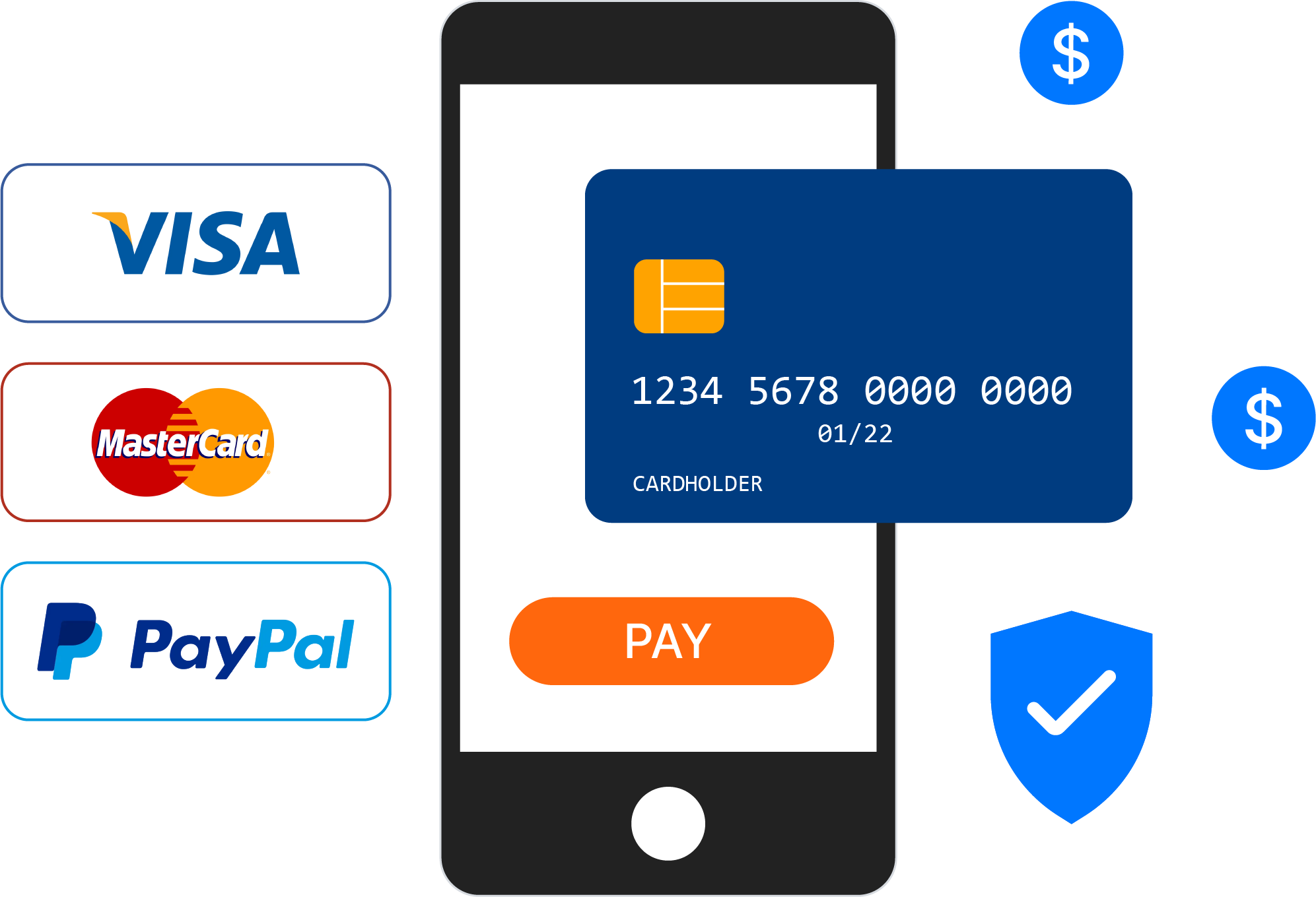
Let your customers shop and let them reach checkout by giving them preferred payment options. Let them do this safely and securely through an SSL certificate installed on your site so that they will be provided with industry-standard end-to-end encryption to thwart hackers from getting into sensitive data.
You can always rely on our super-knowledgeable and super-friendly sales engineers who will give you hands-on support with your SSL Certificates.

SSL Certificates are SSL (Secure Sockets Layer) certificates that authenticate websites and allow them to switch from HTTP to HTTPS encryption, protecting the exchange of valuable information visitors send to or receive from a website.
When you’ve got an SSL certificate protecting your site, your customers can rest assured that the information they enter on any secured page is encrypted. CLDY makes it easy to install your certificate and protect sensitive customer data on your site.
SSL stands for Secure Sockets Layer. SSL certificate displays information to verify the owner of a website and encrypts web traffic with SSL/TLS including the public key, the issuer of the certificate, and associated subdomains. SSL is a protocol for encrypting Internet traffic and verifying server identity. All websites with an HTTPS web address make use of SSL or TLS, as it is otherwise known.
You need an SSL Certificate to instill the user’s trust. You need it to keep user data secure, verify ownership of your website, and prevent attackers from creating a false version of your site.
An SSL Certificate does the following:
Authentication
SSL certificates verify clients that own the domain. This prevents domain attacks and spoofs.
Encryption
SSL/TLS encryption happens when there is a pairing of the public-and-private keys that facilitates SSL certificates. Your customers get the public key to open a TLS connection from the server’s SSL certificate.
HTTPS
SSL certificates are required for the HTTPS web address. HTTPS (the secure version of HTTP) appears on websites that have traffic encrypted by SSL/TLS. Plus, in addition to securing user data, HTTPS displays a credible “trust factor” from the perspective of the site visitor.
When your CLDY SSL Certificate is issued, we send an email to let you know.
If you chose web hosting, Website Builder or Online Store will take care of everything for you.
To install an SSL Certificate on Parallels Plesk Panel, cPanel and Microsoft IIS, please don’t hesitate to contact our sales engineers here. (Writer’s Note: Links to Contact us page)
Domain Validated (DV) certificates are low-cost certificates that only require validation that a company or a person can demonstrate control over a web domain for which they want to secure a certificate.
To obtain a DV certificate, a website owner will receive a confirmation email from the issuing Certificate Authority to an email address listed in the domain’s WHOIS record. DV certificates are typically used by websites that do not conduct business or credit card transactions.
A wildcard certificate is a digital certificate that is applied to a domain and all its subdomains.
Wildcard notation consists of an asterisk and a period before the domain name. Secure Socket Layer (SSL) certificates often use wildcards to extend SSL encryption to subdomains. A conventional SSL certificate works on a single domain.
Extending a single certificate to subdomains rather than purchasing separate certificates can save money and make administration easier. It ensures that each subdomain is individually protected.
Extended Validation (EV) Certificate provides the maximum amount of trust to visitors, and also require the most effort by the certificate authority to conduct an intense investigation of a business before issuance.
EV certificate will also show the name of the company or organization in the address bar itself, and a green bar is added to the user’s browser to signify that the certificate holder is a trusted authority. If you run your online business on a eCommerce or corporate website, it is advised to change your certificate to EV certificate.
All prices are in US Dollars (USD)
Copyright © 2024 CLDY.com Pte Ltd (UEN: 202107287N). All rights reserved.